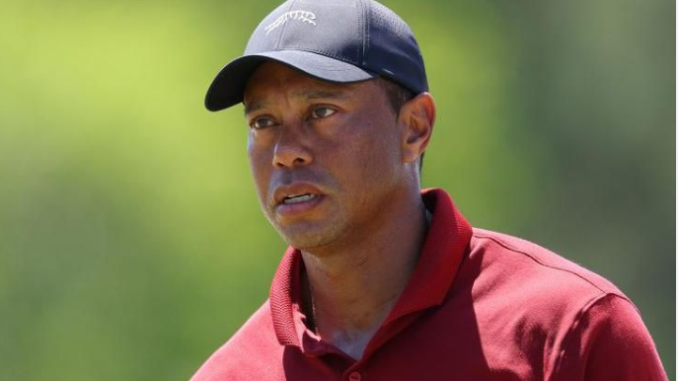
Hughes Norton, the golf legend’s first agent, has spoken out about the “worst part” of his association with Tiger Woods. Norton has attacked Woods’ social abilities, despite not having spoken to the 15-time major winner since being fired by him. When Woods went professional in 1996 at the age of 20, the former superagent represented him for two years while he was prepping for the PGA Championship at Valhalla. When Norton worked as a junior talent scout at IMG seven years ago, that’s when he first met Woods and his father Earl.Throughout his tenure, Norton collaborated with many of the greatest golfers, including 11-year representative Greg Norman. Despite getting Woods record-breaking sponsorship deals, Norton’s firing caused IMG to cut connections as well.Woods persisted in using the sports agency, with Mark Steinberg serving as his agent to this day. As part of his large payout, Norton was also barred from competing with the company and was subject to a ten-year confidentiality agreement. Norton never went back to work in the industry, but he did open up about his experiences in his recently released novel “Rainmaker,” where he discusses his breakup with Woods. After Tiger Woods abruptly broke their relationship, Norton expressed his emotions of betrayal in an interview with Today’s Golfer. He stated, “For all the latest on news, politics, sports, and showbiz from the USA, go to The Mirror US.” “The worst part honestly was that there was no explanation,” Norton stated. “The way Tiger breaks up with people in his life—whether they be managers, girlfriends, or buddies—is just so strange. I would adore having a conversation with Tiger now and asking him, “Look back 25 years, why was that? “I never got the impression that something wasn’t right or that you weren’t content. That makes me feel like a betrayer since it was so difficult to accept,” she said afterwards. “It was pretty dishonest of him to say, ‘See you later,’ after such a short while.” Hughes went on, “Tiger was incredibly egocentric. From a young age, he was entirely focused on his goal of being the best golfer in the sport’s history. “He was very self-centered; nothing else mattered but his demands. There was a complete lack of empathy because he had never really learned how to communicate with others.” Recalling how a “emotionless Tiger stood zombie-like” to give the news, the former spy admitted that that was the last time they had spoken. Hughes also thinks it unnerved him since in just a year, Woods went from being an amateur to the world No. 1 player at the Masters and back. “Fame was something that was uncomfortable for Tiger,” he said. “It was, in fact. It was a disturbance in his existence.” “At one point he said, ‘You know there’s this $40 million from Nike, $20 million from Titleist, it’s paper money,'” Hughes recounted, summarising the situation correctly. Taking up a winner’s check from a tournament he had recently won, he declared, ‘This $300,000 that I won in Las Vegas, that’s real,” Paper money is this other stuff. Although it’s an intriguing perspective, it made his narrow focus apparent.”
Leave a Reply